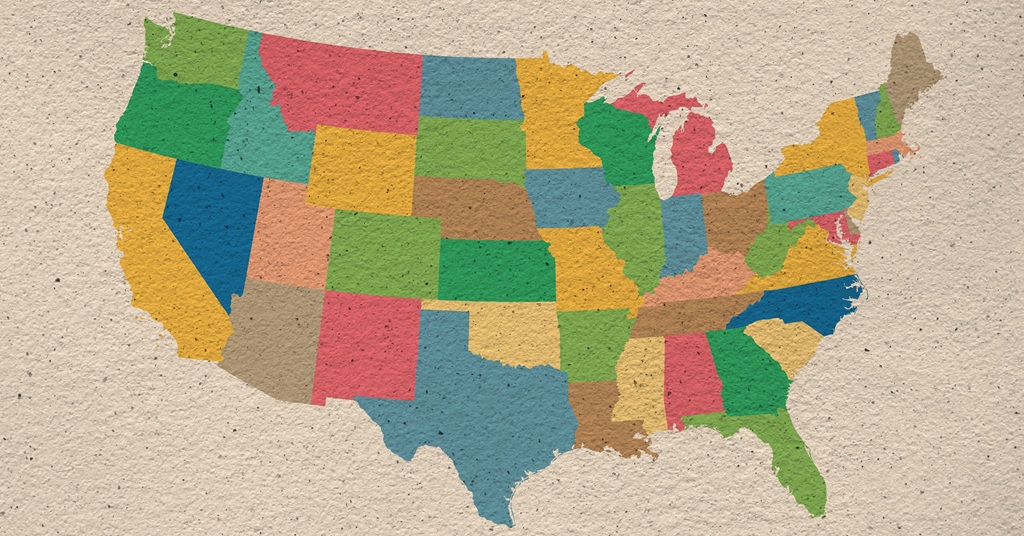The Trump administration’s highly visible immigration enforcement efforts are impacting immigrants across the country – be it through the arrest and detention of immigrants or through the chilling effects these operations have on immigrant communities.
While the federal government’s rhetoric and actions are rightfully at the forefront of immigrants’ minds, state government can also play an outsized role in shaping the day-to-day experience and wellbeing of immigrants in their communities.
State policymakers are playing an increased role in shaping immigration policies, but a growing divide between the types of policies enacted by pro- or anti-immigrant state governments has led to starkly different experiences depending on which state a person lives in.
Understanding Who These Policies Impact
- Proponents of policies that increase state-level immigration enforcement often claim that only immigrants who are “unlawfully present” or “criminals” should be concerned. However, a growing body of evidence demonstrates that immigration enforcement impacts all those whose lives intersect with immigrants.
- According to research by the American Immigration Council, 8%, or nearly 23 million U.S. citizens live with an immigrant parent. Among U.S. citizen children, 7.4 percent, or over 5 million, live with an undocumented family member.
- These children could be severely impacted by local immigration enforcement. Research has shown that mixed-status families, particularly in cases where a U.S. citizen child has undocumented parents, are susceptible to the negative effects local immigration enforcement brings.
Immigrant-Friendly Policies vs. Anti-Immigrant Policies
Broadly, immigrant friendly policies tend to recognize the contributions immigrants make to a community and focus on the successful integration of newcomers, regardless of their immigration status, and provide opportunities for the full participation in a community. These policies can shape the lives of immigrants in many ways.
State lawmakers have worked to expand protections for immigrants through bills on data privacy, immigration legal services, and restrictions on immigration enforcement accessing sensitive locations. Others have increased immigrants’ access to economic opportunities through occupational licensure and workforce development. State leaders, such as Illinois Gov. JB Pritzker, have vowed to protect immigrants from the Trump administration’s aggressive enforcement.
In an environment where the administration is destroying trust between immigrants and government institutions, these bills have the potential to shore up relationships between immigrant communities and local governments.
Many recent policy change at the federal level deliberately and disproportionally limit due process, restrict access to education or healthcare, limit mobility, or otherwise make it systematically more difficult for immigrants to live and work safely in a community.
States, such as Idaho and Montana, are passing laws that attempt to criminalize the presence or reentry of undocumented immigrants in their states. Numerous other state policies, such as those that track the immigration status of certain immigrants, limit access to education for immigrants, and bills that invalidate the lawful driver’s license of undocumented immigrants, contribute to the eroding of trust between immigrant communities and state and local entities, and make communities less safe for all citizens.
The result of these policies is marginalization across the board for immigrants. With laws that systematically limit access to work, education, and impose barriers based on immigration status, immigrants cannot pursue upwardly mobile economic opportunities and overall well-being at the same level as their counterparts in more welcoming states.
It’s Not as Simple as Red States vs. Blue States
It is easy to attribute the drastic differences in state-level immigration policy to partisan divides, but this is not always the case, as individual issues are garnering bipartisan support. Some GOP-led states have worked to preserve the contributions of their immigrant population, recognizing how vital they are to state and local economies.
Take K-12 education, for example; in Utah, the state passed legislation to make it easier for newly arrived families to enroll their children in school and funded language access. Several states have also advanced policies that increase work force opportunities for immigrants in critical areas of need, like Indiana H.B. 1555, which expands licensure to foreign trained physicians. Viriginia S.B. 1475 creates a working group to propose recommendations for expediting licensing for foreign trained dentist.
These examples show that despite some states leaning into harmful policies, another path is possible. Lawmakers can and must buck the partisan trends and lean into bipartisan solutions–which they have demonstrated is possible–to protect the economic wellbeing of their communities.
The Long-Term Consequences
As illustrated in the previous examples, the daily lives of immigrants—both short and long-term–are heavily impacted by the policies their home states choose to pursue.
State lawmakers should also be weary of the economic fallout from policies they choose to implement. For example, data from the Council, showed that Texas stands to lose $244.4 million in wage earnings and $216.9 million in spending power, if it repeals in-state tuition access for undocumented students
This moment of heightened federal immigration enforcement will likely pass. But the consequences of this era– the chronic stress and fear will live on in the minds of immigrants and their U.S. citizen relatives – will endure for much longer.
While federal immigration law and enforcement is not under the purview of state lawmakers, they do have the power to lessen the adverse impacts of harmful federal policies and ensure equal protection, fairness, due process, and opportunities for success that benefit all community members.
FILED UNDER: State Immigration Laws


